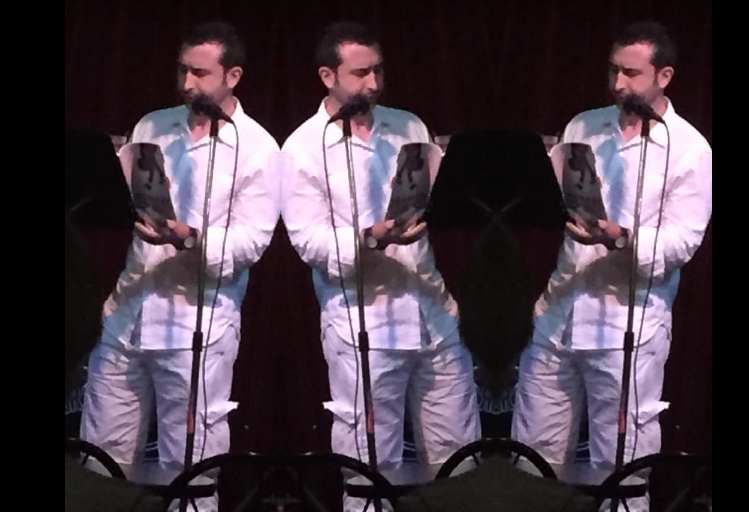…
A few Sundays ago I went uptown to Hudson Gardens, a beautiful part of Manhattan, a very intimate spot. There was a reading by poets who had contributed to Transition: Poems in the Aftermath, poets’ reactions to the November 2016 election, an anthology put together by Michael Broder, publisher at Indolent Books. Jason was a part of that reading, and I was moved by his powerful timely poem.
Jason Schneiderman
Anger
When I was angry,
I kept asking how
anger works.
No one understood
my question.
Friends thought I was joking.
Or being obtuse.
Friends would say: What
do you mean
how anger works
Anger is anger. What
are you asking.
And I would say:
Well. Is anger
a finite
material.
Is anger like hydrogen,
and there’s simply
a certain amount
of it in the universe.
Is there a zero sum
of anger, a law
of the conservation
of anger,
and can we
pass it back
and forth.
Can you take my anger
and leave me less?
Can I take your anger
and then have more?
Is anger a renewable
resource, like trees
or coral reef, subject
to natural rhythms
and mass die offs,
forest fires,
and warming tides,
cycles of growth and depletion.
Is anger something
you spend like money,
that you save or spend
and is gone as it goes,
or something that
is replenished like ejaculate,
more on the way
as soon as you send some off
or is anger like ova,
each egg coming
on its own schedule,
until they run out.
Is anger like pus,
a response to a wound,
that you can drain,
or that you can heal,
Or is anger like a gas
you can vent
so it won’t explode
the tiny vessel
or is anger like water
that will explode
the water balloon
unless you tie it off
at the right time.
I thought someone
had to know
the answer
because I was consumed
by anger,
it was under
everything I did
I felt it all the time,
all the time,
and it never
departed.
I didn’t have a breakdown,
though I asked friends
if what I was experiencing
was a breakdown (no,
they said, a breakdown
looks only
like a breakdown), and
I looked OK,
but no one knew
how to help me,
and I told a friend
that I wasn’t OK
and she told me
that I was OK,
but the anger was there
all the time,
like a pair of shoes
that were always
between me
and the ground I walked on,
and I kept asking everyone
how anger works:
Can you drain it?
Can you vent it?
Can you stop it?
Can you heal it?
Can you trade it?
Can you sell it?
And no one,
no one, no one,
no one knew
what I was asking
until finally
someone asked me
to describe
what I was feeling,
and she said
you’re not talking
about anger
you’re talking about rage,
and I realized
that I’ve never
experienced anger.
I only know rage.
Which helped a lot.
Which explained why
I could only think
about striking out
and then not strike out.
Which explained why
I knew which plants
in my garden could be made
into poisons, and how.
Which explained
why my daydreams
turned into
elaborate fantasies
about harming people,
until I did the things
I imagined to myself,
and listen, please listen,
I knew it was bad,
and I wanted out, but
I couldn’t write
my way out of it,
and I couldn’t think
my way out of it,
and I couldn’t love
my way out of it,
and I couldn’t read
my way out of it,
and I thought I would live
with it forever,
that I would contain
it at whatever price
I had to pay,
and I’m telling you this,
and I need you to listen,
because I’m saying
that I do understand
what it’s like to want
everyone else to suffer
as much as you
are suffering,
and I understand
what it’s like
to want to die
both to contain
the pain of rage,
and to spread
the pain of rage,
and when you read
of this murder or
that bombing, know,
these killers are not
inhuman or monstrous,
but rather that they
are weak vessels for rage,
that they are balloons
that burst with their rage,
that they are pipe bombs made
of flesh and bone,
and peace is what I want
more than anything else,
but peace is so fragile,
so easy to take, so easy
to lose, and so they take it
from you, to feel less alone,
and I’m out of it now
because I thought
I had done it to myself,
but I didn’t. And I see
that now. I’m closer
to peace. I’m further
from rage. I’m a bomb
no longer ticking,
but I was a bomb.
Hold me tight.
I was a bomb.
Hold me tight.
…
Here is a link to the anthology, Transition: Poems in the Aftermath, online:
http://www.indolentbooks.com/category/online-projects/transitions-poems-in-the-aftermath/

